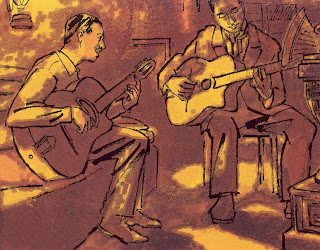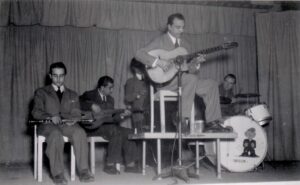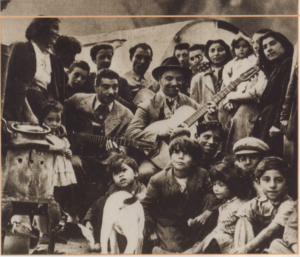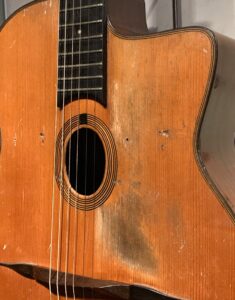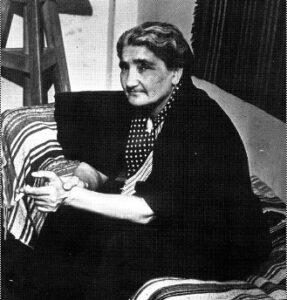For Jazz aficionados, there exists a captivating chapter in the history of Jazz guitar—a meeting that took place between two legendary musicians, Django Reinhardt and Oscar Alemán. Django, renowned for his mesmerizing technique and distinctive jazz style, crossed paths with the remarkable Oscar Alemán. Alemán, known for his swinging rhythms, masterful fingerwork, and a fusion of influences from Brazilian “Choro,” bossa nova, tango, and Latin music, left an indelible mark on the genre. While no visual evidence remains of their encounters, we rely on the cherished memories of witnesses and testimonials to unravel this extraordinary collaboration. Through this blog, we aim to transcribe and gather diverse sources that bring to life the magical synergy between these two virtuosos. Join us on this journey as we delve into the captivating tale of Django Reinhardt and Oscar Alemán’s meeting.

“…Duke Ellington and his Jazz Orchestra arrived in Paris, France on April 1, of 1939.
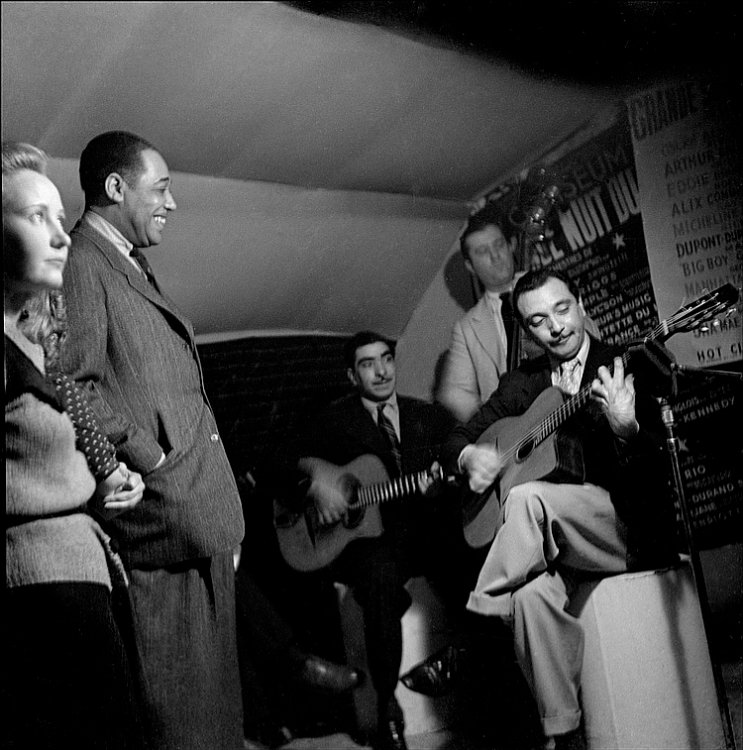
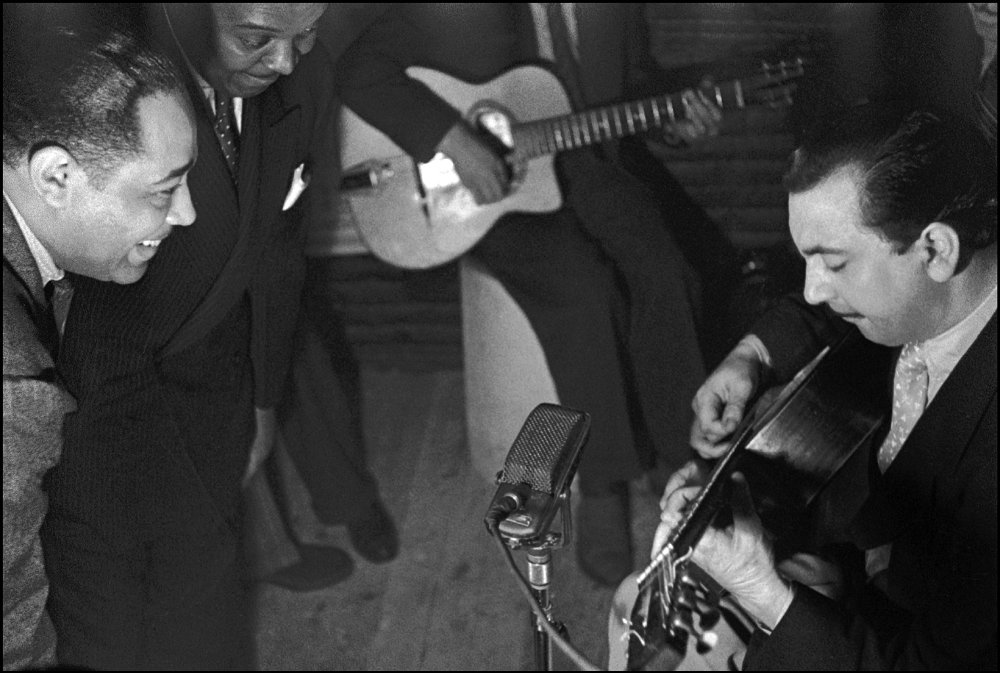
His cornetist, Rex Stewart went to a nightclub in Montmartre (Paris), where he says he saw
Django Reinhardt, playing with Henri Salvador and Oscar Alemán.
Rex Stewart wrote in his book: “Boy Meets Horn”:
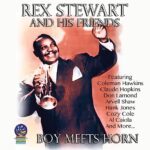
“The air was electric, the champagne flowed, and the magic of the moment is firmly etched in my memory.”
Argentine créole Oscar Aleman was sadly eclipsed by the spotlight of Django Reinhardt. His jazz guitar playing was perhaps equally stellar. Whether playing with Freddy *Snake Hips” Taylor’s Swing Men from Harlem (shown) or leading Josephine Baker’s orchestra, Alemán was a central figure on the Paris jazz scene. On the meager handful of recordings he made in 1938 in Copenhagen (while on tour with Baker) and again in 1939 for Delaunay, Alemán fingerpicked his National tritone guitar, playing simultaneous harmonies behind his leads with a sure sense of swing. And yet his jazz sensibility went beyond the American rhythms to include Brazilian and Latin sounds, spicing his music like few others at the time.
Henri Salvador sometimes shared the stage with Django and Oscar Aleman in “battles of the guitar.”
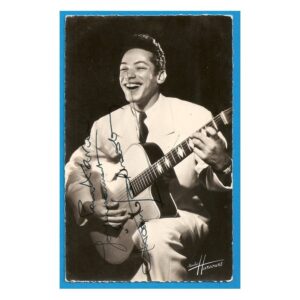
From the book: “Django Reinhardt and the illustrated history of Gypsy Jazz” Michael Dregni with Alain Antonietto and Anne Legrand. Page.70

Oscar Alemán had the honor of leading Josephine Baker’s orchestra, although it is not clear whether this happened in Paris or on the French Riviera during a tour in which he coincided with Jean Sablon and met Django Reinhardt. The impact of American jazz in Europe was a stunning experience for both virtuosos, and after returning to Paris, encounters with the Hot Club de France followed. Despite being a more professionally committed musician, Oscar did not receive the same decisive support from the club members as Django did. Nevertheless, Oscar’s early jazz formations were heavily influenced by the club’s quintet, playing with violinists such as Svend Asmussen. While his interpretations of “Sweet Sue” and “Limehouse Blues” enjoy good violinistic execution, they do not reach the level of complicity achieved by the Reinhardt-Grappelli tandem.
Oscar claimed that he was a very close friend of Django Reinhardt. He frequently invited him to his campsite, where they spent hours playing, eating, and enjoying the Manouche hospitality. Django did not usually do this with any gadjo, no matter how dark-skinned, suggesting an intense friendship between them. In an interview, Oscar said, “I admired Django, he impressed me technically. We played together many times, but not in public, always for ourselves and the people who were there to listen to us. He was a great person, I loved him very much, and I think he loved me too.”
From the Book“Django Reinhardt: Un Gitano en París”, Juan P. Jimenez. Emilie Durand.” Page: 169
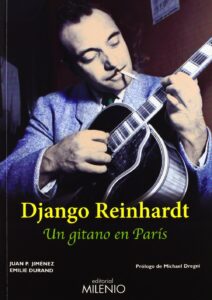
Extract from an interview to Oscar Aleman by Tómas Mooney: “Oscar Alemán: Swing Guitarist, Jazz Journal International”, Vol. 35, No. 4 + 5 (1982)
”I knew Django Reinhardt well. He used to say jazz was gipsy – we often argued over that. I agree with many Americans I met in France who said he played very well but with too many gipsy tricks. He had very good technique for both hands, or rather one hand and a pick, because he always played with a pick. Not me, I play with my fingers. There are things you can’t do with a pick – you can’t strike the treble with two fingers and play something else on the bass string. – But I admired him and he was my friend. He was my greatest friend in France. We played together many times, just for ourselves. I used to go to his wagon, where he lived. I’ve slept and eaten there – and also played! He had three or four guitars. Django never asked anyone to go to his wagon, but he made an exception with me. I appreciated him, and I believe the feeling was mutual”.
